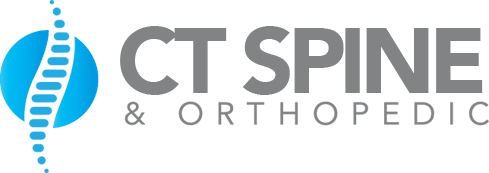When faced with the debilitating pain of a herniated disc, identifying the right medical specialist to consult is paramount. While orthopedic surgeons are often top of mind due to their expertise in musculoskeletal disorders, other medical professionals such as neurologists, neurosurgeons, and pain management specialists also play critical roles in treatment. Each of these specialists brings a unique perspective and skill set to the table, offering various diagnostic and therapeutic options. Understanding the nuances of what each type of doctor can offer may greatly impact your treatment outcome and overall recovery journey.
Primary Care Physicians
Primary care physicians frequently serve as the initial point of contact for patients experiencing symptoms of herniated discs, providing essential evaluations and referrals to specialists if needed. Their role is pivotal in the early detection of herniated discs, which can present with varying symptoms such as localized back pain, radiating leg pain, or neurological deficits. These physicians conduct thorough physical examinations, including neurological assessments, to determine the severity and exact location of the disc herniation.
A critical component of the primary care physician’s role is patient education. They inform patients about the nature of herniated discs, potential causes, and preventive measures. This education is fundamental in helping patients understand their condition, adhere to treatment plans, and make informed decisions regarding their health.
The referral process is another key responsibility of primary care physicians. Based on the initial assessment, they may direct patients to specialists such as neurologists, orthopedic surgeons, or physical therapists for further evaluation and treatment. This referral process ensures that patients receive specialized care tailored to their specific needs, optimizing outcomes. Through these combined efforts, primary care physicians facilitate a coordinated approach to managing herniated discs effectively.
Neurologists
Neurologists play a crucial role in managing herniated discs through specialized diagnostic techniques such as electromyography (EMG) and nerve conduction studies (NCS). They develop thorough treatment plans tailored to the patient’s specific neurological impairments, ensuring targeted therapeutic interventions. Additionally, neurologists employ advanced pain management strategies, including epidural steroid injections and nerve blocks, to alleviate severe symptoms and improve quality of life.
Neurological Diagnostic Techniques
Accurate diagnosis of herniated discs often necessitates the utilization of advanced neurological diagnostic techniques, which include electromyography (EMG) and nerve conduction studies (NCS) to assess nerve function and pinpoint areas of nerve compression. Electromyography tests involve the insertion of fine needles into specific muscles to measure electrical activity both at rest and during contraction. This technique helps neurologists detect abnormalities in muscle response due to nerve damage caused by herniated discs.
Complementing EMG, nerve conduction studies are utilized to evaluate the speed and strength of electrical signals traveling through peripheral nerves. During an NCS, small electrodes are placed on the skin, and mild electrical impulses are administered to stimulate the nerves. The resulting data provide insights into the extent and location of nerve damage, aiding in the accurate localization of the herniated disc impinging on the nerve.
Together, these neurological diagnostic techniques offer a thorough view of nerve function and integrity. By combining the data from electromyography tests and nerve conduction studies, neurologists can precisely diagnose the severity and specific location of nerve compression, an essential step in formulating an effective treatment plan for patients suffering from herniated discs.
Treatment Plan Development
Developing an effective treatment plan for herniated discs involves a meticulous evaluation of diagnostic data, clinical symptoms, and patient history to tailor interventions that address both the immediate discomfort and long-term recovery. Neurologists play a pivotal role in this process, utilizing their expertise to interpret MRI scans, nerve conduction studies, and electromyography results to accurately localize and assess the severity of the herniation.
A thorough treatment plan often begins with patient education. This is essential, as it empowers patients to understand their condition, adhere to prescribed therapies, and make informed decisions about their care. Neurologists provide detailed explanations about the anatomy of the spine, the mechanics of disc herniation, and the rationale behind each proposed intervention.
Rehabilitation exercises form a cornerstone of the treatment regimen. These exercises are specifically designed to strengthen the core muscles, enhance spinal flexibility, and alleviate pressure on the affected nerves. Neurologists collaborate with physical therapists to develop and monitor personalized exercise programs that evolve with the patient’s progress. This multidisciplinary approach ensures that each patient receives a tailored plan that maximizes functional recovery and minimizes the risk of recurrence. Through a combination of patient education and targeted rehabilitation exercises, neurologists can effectively manage herniated disc symptoms and promote long-term spinal health.
Advanced Pain Management
In conjunction with rehabilitation exercises, advanced pain management techniques are imperative for addressing the persistent and often debilitating discomfort associated with herniated discs. Neurologists play a pivotal role in this domain by leveraging their expertise in the nervous system to offer targeted therapies. One notable approach is the use of minimally invasive procedures such as epidural steroid injections, which deliver anti-inflammatory medication directly to the affected nerve roots, thereby reducing inflammation and pain with precision.
Furthermore, neurologists are at the forefront of employing regenerative therapies to promote healing and tissue repair. Techniques such as platelet-rich plasma (PRP) injections and stem cell therapy harness the body’s intrinsic healing mechanisms to repair damaged intervertebral discs. PRP involves concentrating platelets from the patient’s own blood and injecting them into the herniated disc area to stimulate tissue regeneration. Similarly, stem cell therapy introduces pluripotent cells that can differentiate into various cell types necessary for disc repair.
These advanced pain management strategies, when integrated with a thorough treatment plan, offer significant relief and functional improvement for patients suffering from herniated discs. By combining minimally invasive techniques with regenerative therapies, neurologists provide a sophisticated and effective approach to managing chronic disc-related pain.
Orthopedic Surgeons
Orthopedic surgeons specialize in the diagnosis, treatment, and surgical intervention of musculoskeletal disorders, including herniated discs, which often require precise and targeted approaches to alleviate pain and restore function. These specialists employ a range of surgical techniques depending on the severity and location of the herniation. Common procedures include microdiscectomy, which involves the removal of the herniated portion of the disc through a thorough and detailed incision, and laminectomy, where part of the vertebral bone is removed to relieve pressure on the spinal cord or nerves.
In addition to surgical intervention, orthopedic surgeons provide thorough care plans that address preoperative and postoperative needs. The recovery periods for these surgeries can vary, with microdiscectomy generally offering shorter recovery times due to its minimally invasive nature, often allowing patients to return to normal activities within a few weeks. Conversely, more extensive procedures like laminectomy may require longer recovery periods, potentially extending to several months, to guarantee proper healing and rehabilitation.
Orthopedic surgeons also emphasize the importance of physical therapy and lifestyle modifications to enhance recovery and prevent recurrence. Their expertise ensures that each patient receives a personalized approach, optimizing outcomes and improving quality of life.
Neurosurgeons
Neurosurgeons possess specialized surgical expertise essential for addressing complex cases of herniated discs, often involving intricate spinal anatomy. Their thorough diagnostic skills enable precise identification of nerve impingements and other neurological complications. Additionally, they offer advanced treatment options, including minimally invasive techniques and microsurgical procedures, tailored to individual patient needs.
Specialized Surgical Expertise
When dealing with herniated discs, neurosurgeons possess specialized surgical expertise essential for addressing complex spinal pathologies and ensuring best patient outcomes. The technical prowess of neurosurgeons in performing advanced procedures such as robotic surgery and minimally invasive techniques greatly enhances treatment efficacy and patient recovery. Robotic surgery allows for greater precision and control during operations, thereby reducing the risks associated with traditional open surgeries. This method employs robotic systems to assist neurosurgeons in executing delicate maneuvers with heightened accuracy, ultimately minimizing damage to surrounding tissues.
Minimally invasive techniques, another cornerstone of neurosurgical expertise, involve smaller incisions and the use of specialized instruments to access and repair herniated discs. These procedures often result in reduced postoperative pain, shorter hospital stays, and faster recovery times for patients. Techniques such as microdiscectomy and endoscopic spine surgery fall under this category, wherein neurosurgeons utilize high-definition cameras and microsurgical instruments to meticulously remove or repair the protruding disc material.
Comprehensive Diagnostic Skills
In addition to their surgical acumen, the diagnostic capabilities of neurosurgeons play a pivotal role in accurately identifying and evaluating the extent of herniated disc pathologies. Central to their diagnostic proficiency are advanced imaging tests, which include magnetic resonance imaging (MRI) and computed tomography (CT) scans. These tools provide high-resolution images, allowing neurosurgeons to pinpoint the exact location and severity of the herniation, as well as its impact on adjacent neural structures.
Equally important is the thorough assessment of the patient’s history. Detailed documentation of symptom onset, duration, and progression, along with any prior treatments and their outcomes, provides critical context. This historical data enables neurosurgeons to correlate clinical findings with imaging results, enhancing diagnostic accuracy. Additionally, neurosurgeons perform comprehensive physical examinations to assess neurological function, reflexes, and sensory deficits, further refining their diagnostic hypothesis.
This meticulous approach ensures a holistic understanding of the patient’s condition, facilitating tailored treatment plans. By integrating imaging tests with a thorough patient history and physical examination, neurosurgeons can differentiate herniated discs from other spinal disorders, guaranteeing precise and effective management strategies. Such in-depth diagnostic skills are indispensable in formulating an ideal care trajectory for herniated disc sufferers.
Advanced Treatment Options
Employing cutting-edge techniques, the advanced treatment options for herniated discs encompass a range of surgical and non-surgical interventions tailored to the specific needs of each patient. Neurosurgeons, leveraging their specialized expertise, often utilize minimally invasive procedures to reduce recovery time and mitigate complications. Techniques such as microdiscectomy and endoscopic spine surgery enable surgeons to remove or repair herniated disc material with small incisions, minimizing tissue disruption and postoperative pain.
Additionally, regenerative medicine has emerged as a promising non-surgical treatment modality. This approach involves the use of biologics, such as platelet-rich plasma (PRP) and stem cell therapy, which aim to enhance the body’s natural healing processes. By injecting these biologics directly into the affected disc or surrounding tissues, regenerative medicine aims to reduce inflammation, promote tissue regeneration, and alleviate pain.
Moreover, advanced imaging technologies, including intraoperative MRI and CT scanning, facilitate precise navigation during surgical interventions, ensuring excellent outcomes. These state-of-the-art techniques underscore the neurosurgeon’s pivotal role in managing complex cases of herniated discs, offering patients effective solutions that align with contemporary medical advancements. Ultimately, the integration of minimally invasive surgery and regenerative medicine represents a significant evolution in the treatment paradigm for herniated discs.
Pain Management Specialists
Pain management specialists are medical professionals who focus on the diagnosis and treatment of chronic pain, including pain caused by herniated discs. Utilizing a holistic approach, they employ various techniques to alleviate pain and improve patient function. One of the primary modalities these specialists use is injection therapy. This can include epidural steroid injections, facet joint injections, and nerve blocks, all aimed at reducing inflammation and providing direct pain relief to affected areas.
In addition to injection therapy, pain management specialists often engage in medication management. This involves the careful selection and administration of pharmaceuticals to control pain and improve quality of life. Medications may include non-steroidal anti-inflammatory drugs (NSAIDs), muscle relaxants, and neuropathic pain agents. For more severe cases, opioids may be prescribed, albeit cautiously, due to their potential for dependency and side effects.
These specialists also frequently collaborate with other healthcare providers to create tailored treatment plans tailored to individual patient needs. By combining their expertise in injection therapy and medication management, pain management specialists can offer significant relief for patients suffering from the debilitating effects of herniated discs, thereby enhancing their overall well-being and functionality.
Physical Therapists
Physical therapists play an essential role in the non-surgical management of herniated discs, utilizing targeted exercise regimens and manual therapy techniques to alleviate symptoms and improve spinal function. These healthcare professionals design individualized exercise routines that aim to strengthen the muscles supporting the spine, enhance flexibility, and promote proper posture. Such exercise regimens often include core stabilization exercises, lumbar extension activities, and specific stretching protocols to reduce nerve compression and mitigate pain.
Manual therapy is another cornerstone of physical therapy for herniated discs. This hands-on approach encompasses a variety of techniques, including spinal mobilization, soft tissue manipulation, and myofascial release. These interventions aim to restore normal joint mechanics, reduce muscle tension, and improve blood circulation to the affected areas. By addressing both the muscular and skeletal components of the spine, manual therapy can greatly enhance functional mobility and decrease discomfort.
Physical therapists also educate patients on body mechanics and ergonomics to prevent further injury. They may recommend modifications to daily activities and advise on proper lifting techniques. Through a combination of exercise routines and manual therapy, physical therapists can effectively manage herniated disc symptoms and improve patients’ overall quality of life.
Chiropractors
Chiropractors employ manual adjustment techniques to realign the spine, aiming to reduce pressure on the herniated disc and alleviate pain. These methods, including spinal manipulation and mobilization, are designed to restore functional movement and enhance the body’s natural healing processes. The benefits of chiropractic care often include reduced discomfort, improved mobility, and decreased inflammation, making it a valuable non-invasive option for managing herniated disc symptoms.
Chiropractic Treatment Methods
Chiropractic treatment for herniated discs involves the application of spinal manipulation and manual adjustments to alleviate pressure on the affected nerves and promote ideal spinal alignment. Chiropractors employ various techniques to address the displacement and inflammation associated with herniated discs. Spinal adjustments, also known as spinal manipulative therapy (SMT), are a primary intervention where precise, controlled force is applied to the vertebrae. This technique aims to restore vertebral motion, reduce nerve irritation, and improve overall spinal function.
Manual therapy encompasses a range of hands-on techniques beyond spinal adjustments, including flexion-distraction, a gentle, non-thrusting spinal manipulation designed specifically for herniated discs. This method involves the use of a specialized table that allows the chiropractor to gently stretch and decompress the spine, which can alleviate disc pressure. Soft tissue therapy, another form of manual therapy, targets the muscles and ligaments surrounding the spine to reduce muscle spasms and improve circulation, thereby supporting disc healing and reducing discomfort.
Chiropractors may also incorporate therapeutic exercises and ergonomic recommendations tailored to the patient’s specific condition, further enhancing the effectiveness of the spinal adjustments and manual therapies in managing herniated disc symptoms.
Benefits of Chiropractic Care
One of the primary benefits of chiropractic care for herniated discs is the holistic approach to pain management and spinal health restoration. Chiropractic care emphasizes spinal adjustments, which aim to realign the vertebral column, thereby reducing nerve compression and alleviating pain. These adjustments are precise manipulations performed by trained professionals, designed to improve overall spinal mechanics and function.
In addition to spinal adjustments, chiropractors often employ inclusive approaches to treat herniated discs. These include lifestyle modifications, exercise recommendations, and nutritional guidance. By addressing the root causes of spinal issues and promoting well-rounded wellness, chiropractic care helps in not only alleviating current symptoms but also in preventing future occurrences.
Moreover, chiropractic care minimizes the need for surgical interventions and reliance on pharmaceuticals, thereby reducing the risk of potential side effects and complications. Techniques such as flexion-distraction and spinal decompression are specifically tailored to relieve pressure on the herniated disc and facilitate natural healing processes.
Rheumatologists
Rheumatologists specialize in diagnosing and treating autoimmune and inflammatory conditions that may contribute to or exacerbate herniated discs. These medical professionals are adept at managing autoimmune diseases such as rheumatoid arthritis, ankylosing spondylitis, and lupus, which can lead to systemic inflammation affecting spinal structures. Joint inflammation, a hallmark of many rheumatic conditions, can precipitate or worsen herniated discs by weakening the supportive tissues around the spine.
Rheumatologists employ a variety of diagnostic tools, including blood tests for inflammatory markers and imaging studies such as MRI, to pinpoint the underlying causes of spinal discomfort. Their treatment regimens often involve the use of disease-modifying antirheumatic drugs (DMARDs) and biologics, which target specific pathways in the immune response to reduce inflammation and prevent further tissue damage. Additionally, they may recommend physical therapy and lifestyle modifications to alleviate symptoms and enhance spinal stability.
In cases where inflammation is a significant factor, rheumatologists can coordinate care with other specialists, such as orthopedic surgeons or neurologists, to provide a holistic approach. This integrated management aims to mitigate pain, restore function, and improve the overall quality of life for patients suffering from herniated discs.
Physiatrists
Physiatrists, also known as physical medicine and rehabilitation (PM&R) physicians, specialize in diagnosing and treating musculoskeletal disorders, including herniated discs, through holistic interventions. These medical professionals focus on enhancing and restoring functional ability and quality of life to those with physical impairments. By utilizing a thorough approach, physiatrists develop individualized rehabilitation programs aimed at pain relief, mobility improvement, and functional recovery.
A key component of a physiatrist’s treatment strategy for herniated discs involves inclusive therapies. These non-invasive methodologies can include physical therapy, exercise regimens, and pain management techniques such as medication or injections. Physical therapy often encompasses targeted exercises to strengthen the muscles surrounding the spine, thereby alleviating pressure on the herniated disc and reducing pain. Additionally, physiatrists may employ modalities such as heat, cold, ultrasound, and electrical stimulation to further alleviate symptoms and promote healing.
Rehabilitation programs designed by physiatrists are tailored to meet the specific needs and conditions of each patient. These programs are iterative, with regular assessments to monitor progress and adjust treatment plans as necessary. The ultimate goal is to enhance the patient’s functional capacity and return them to their daily activities with minimal discomfort and maximum efficiency.
Acupuncturists
Acupuncturists specialize in the inclusive practice of acupuncture, which involves inserting fine needles into specific points on the body to alleviate pain and promote healing, making it a holistic therapy for individuals with herniated discs. Utilizing traditional techniques rooted in Traditional Chinese Medicine (TCM), acupuncturists aim to balance the flow of Qi (energy) through meridians—pathways in the body believed to influence health and well-being.
Acupuncture’s efficacy in treating herniated discs lies in its ability to reduce inflammation, improve circulation, and stimulate the release of endorphins, the body’s natural painkillers. By targeting specific acupoints, practitioners can help mitigate the pain and discomfort associated with herniated discs, thereby enhancing patients’ overall quality of life.
Inclusive approaches are integral to acupuncture practice, emphasizing the interconnectedness of physical, emotional, and spiritual health. Acupuncturists often incorporate other TCM modalities such as cupping, moxibustion, and herbal medicine to create a thorough treatment plan tailored to the individual’s needs. This multi-faceted approach not only addresses the symptoms but also seeks to harmonize the body’s internal environment, fostering long-term healing and resilience against further injury.
When to Seek a Specialist
Recognizing the right time to seek a specialist for a herniated disc is essential for ensuring the best treatment outcomes and preventing further complications. Initial symptom evaluation, typically conducted by a primary care physician, involves evaluating the severity and duration of symptoms such as pain, numbness, and muscle weakness. If conservative treatments like physical therapy, medications, and rest fail to alleviate symptoms within a prescribed timeframe, or if symptoms worsen, a referral to a specialist becomes necessary.
Orthopedic surgeons and neurosurgeons are the primary specialists to contemplate for herniated disc cases requiring advanced intervention. These specialists possess the expertise to conduct detailed diagnostic evaluations using imaging techniques like MRI and CT scans. Patient referrals to these professionals are particularly critical if there are signs of neurological deficits, such as loss of bladder or bowel control, or significant motor function impairment, which may indicate severe nerve compression.
Furthermore, interventional pain management specialists may be consulted for epidural steroid injections or other minimally invasive procedures. Timely patient referrals based on thorough symptom evaluation can greatly improve patient outcomes, reduce the risk of permanent nerve damage, and expedite the recovery process.
Frequently Asked Questions
Can Lifestyle Changes Help Manage Herniated Disc Symptoms?
Yes, lifestyle changes can help manage herniated disc symptoms. Ergonomic adjustments and stress management are critical in reducing strain on the spine, improving posture, and alleviating pain, thereby enhancing overall patient outcomes.
Are There Any Non-Surgical Treatments for Herniated Discs?
Non-surgical treatments for herniated discs include physical therapy, which focuses on strengthening and flexibility exercises, and chiropractic care, which involves spinal adjustments to alleviate pressure on the affected nerves, thereby reducing pain and enhancing mobility.
How Does Diet Impact Herniated Disc Recovery?
Diet profoundly impacts herniated disc recovery by incorporating anti-inflammatory foods, which reduce inflammation, and enhancing nutrient absorption, which supports tissue repair and overall spine health, thereby potentially accelerating the healing process and reducing discomfort.
Can Herniated Discs Heal on Their Own?
Herniated discs can sometimes heal on their own through natural remedies and pain management. Conservative treatments, including physical therapy, anti-inflammatory medications, and lifestyle modifications, can effectively alleviate symptoms and promote disc recovery over time.
What Exercises Are Best for Herniated Disc Prevention?
For herniated disc prevention, integrating core strengthening and flexibility training exercises is essential. Core exercises enhance spinal support, while flexibility training improves overall range of motion, reducing the risk of disc herniation and associated complications.



